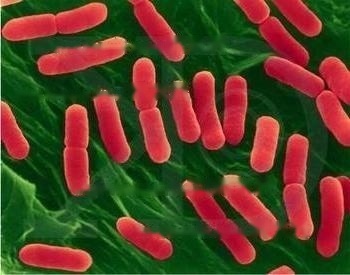Dog disease colibacillosis is an acute intestinal infectious disease caused by Escherichia coli in newborn puppies within 1 week of age. The clinical features are sepsis and diarrhea. Escherichia coli is widely present in the intestines, soil, feces and water of healthy dogs, but not all Escherichia coli are pathogenic, but some pathogenic strains suffer from poor feeding and management, poor sanitation in kennels, and insufficient milk. , climatic changes and other conditions, can cause the disease of young dogs.

Symptoms of canine colibacillosis The sick puppy showed depression, physical weakness, and anorexia (see Figure 1-33), The obvious symptoms are abdominal pain, diarrhea, discharge of green, yellow-green or yellow-white, uneven viscosity, fishy-smelling feces, often mixed with undigested curds and air bubbles, and feces around the anus and tail are often covered with feces. contaminated (see Fig. 34, Fig. 1-3S, Fig. 1-36). In the later stage, the sick pups often show symptoms of dehydration, which can be seen in the Sun Megfa group, with weakness in both hind limbs, shaking when walking, and lack of elasticity in the skin. The dead precursor spills below the norm. The fatality rate is high, and some have neurological symptoms before dying.
Dog disease colibacillosis treatment If a dog is found to be sick, it should be treated immediately. Many drugs have good curative effect on Escherichia coli, but they must be detected and treated early in the dry period. Commonly used drugs are sulfonamides, norfloxacin, and other anti-inflammatory and antidiarrheal drugs. In severe cases, dextrose saline and sodium bicarbonate solution can be injected intravenously or intraperitoneally, and sufficient clean drinking water can be ensured to prevent dehydration. The above-mentioned drugs can be used to prevent the puppies of the same litter without disease.

Subscribe to Newsletter
Professional platform for pets, dogs and cats.
![[Dog Training 5] The training method of pet dog dining etiquette](/static/img/12192/12192_1.jpg)




